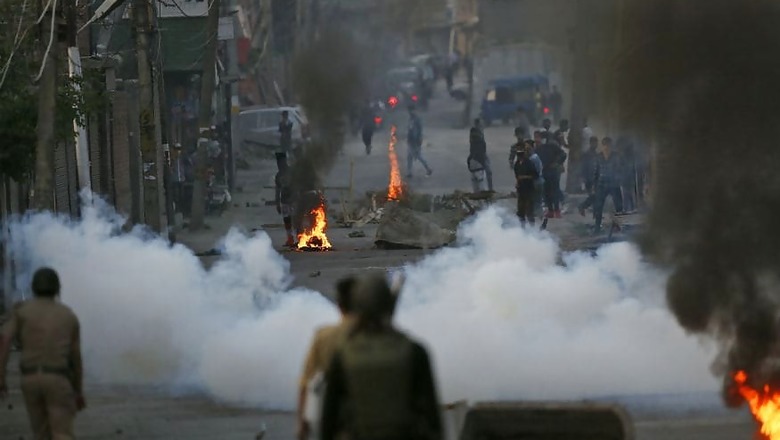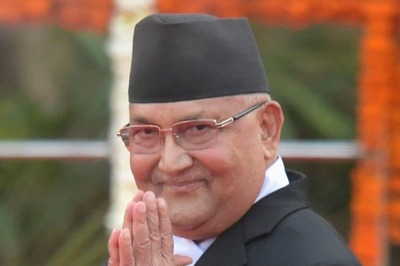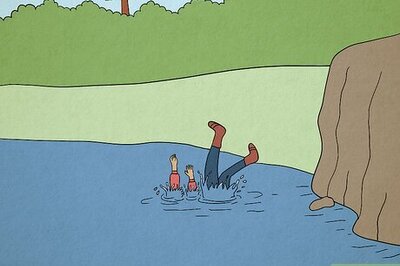
views
The ceasefire announcement made by the Union Home Minister two days ago is a very important, positive and welcome step. It will certainly help cool down tempers.
Coming after a prolonged spell of violence in Kashmir, it also carries a lot of significance. But everything now hinges on the Centre’s next step.
The step taken by the Centre to initiate a ceasefire has to be reciprocated by the other side. It also has to be followed up with sustainable dialogue so that a political solution to the present situation is found and implemented.
We can't have ceasefire only till Eid. If after the end of Ramzan guns start roaring again in the valley, the whole exercise will be meaningless.
Ceasefire is a demand that not just the PDP but opposition parties, including us, had been making for a long time. Kashmir needs an end to the cycle of violence most urgently now than ever before. Peace needs to be given a chance.
For the last three to four years we have been seeing a “tough” handling of the situation in Kashmir. This hasn’t yielded anything and, on the contrary, the situation on the ground has deteriorated. We have been seeing lots and lots of deaths in the valley during the last two years, which have alienated Kashmiris to an even greater degree than ever before.
One may trace the present turmoil in the coalition between PDP and BJP. Before they came together, there was period of calm and peace in the valley and it is only in the last three years since they came to power that an unrelenting spell of violence has been unfolding in the valley. The violence is the manifestation of the anger of people who feel betrayed by the party that campaigned against BJP only to forge an alliance with them at the first possible opportunity.
What is remarkable in all this turmoil is that the situation has deteriorated most drastically in South Kashmir, which is supposed to be PDP’s stronghold. There are reasons to be skeptical of PDP’s intent or their ability to take this initiative forward.
It is thanks to them now that the space for mainstream politics has shrunk in Kashmir and that of separatism has expanded. This is the party that couldn’t hold a Parliamentary bypoll in Chief Minister’s own constituency – Anantnag.
Not only did they fail to hold elections there, they cancelled it after months of dilly-dallying, knowing in all probability that they would lose this election, and in process created a history of sorts.
This was probably the first time that the state government responded to the Hurriyat’s call for election-boycott in the affirmative.
To come back to the question of ceasefire, we will now look forward to the process of a structured dialogue. All stakeholders, barring none, should be involved in this dialogue. Why hasn’t, for instance, the interlocutor appointed by the centre – Dineshwar Sharma – approached the Hurriyat yet? If we have spoken to them earlier, why not now?
Also, we have to keep in mind that exercises in discussing Kashmir have happened before. We had parliamentary delegations coming here, interlocutors visiting us, working groups founded precisely to find the solution to Kashmir. But where are those reports? Isn’t the report of the interlocutors still rotting somewhere in the Home Ministry even today? So a new peace process, a process of dialogue, will have to bear these facts in mind.
The society in Kashmir is at war with itself. The state government is perceived to be fighting with the youth, the students, its own employees…all segments of the Kashmiri society are fighting battles with the government. The ‘Agenda of Alliance’, the document that was to ensure that needs and aspirations of Kashmiris were taken care of, is nowhere. Where is this agenda now? What have they been able to fulfil so far?
As an opposition party, the National Conference has always sided with democratic processes. When we met the Prime Minister recently we did not ask him to dismiss the incumbent government, only asked him to strengthen the democratic structures.
We have always been hopeful that something good will come out of Prime Minister's office. We were very hopeful when Prime Minister, speaking from the ramparts of Red Fort, said: "Goli se nahi, gale lagane se baat banegi." We have seen a lot of goli (bullets). We are yet to see the Prime Minister to embrace us. Perhaps time for it has now come.
(Nasir Aslam Wani, is the provincial president of National Conference and the former Home Minister of J&K - As told to Suhas Munshi)


















Comments
0 comment